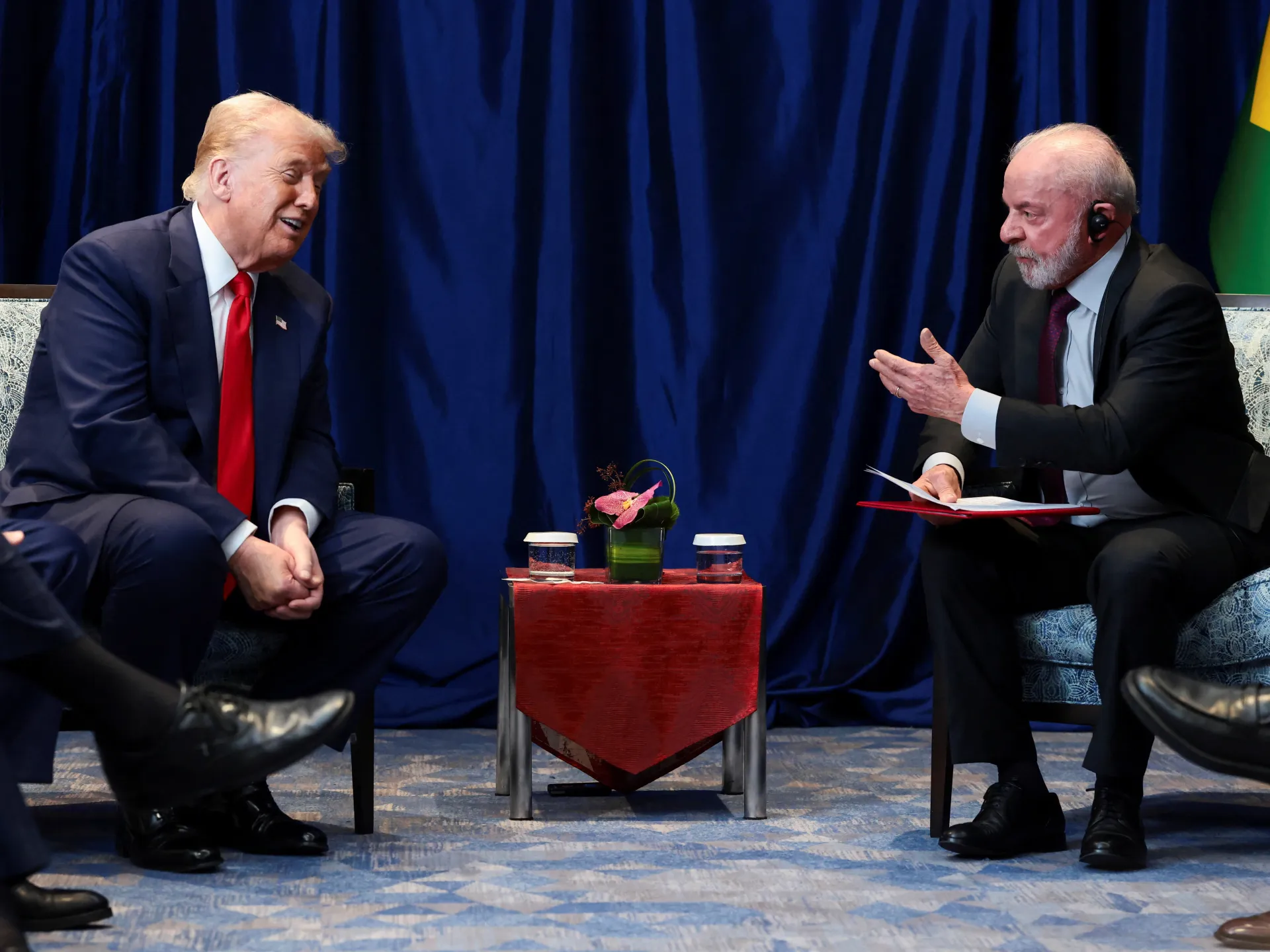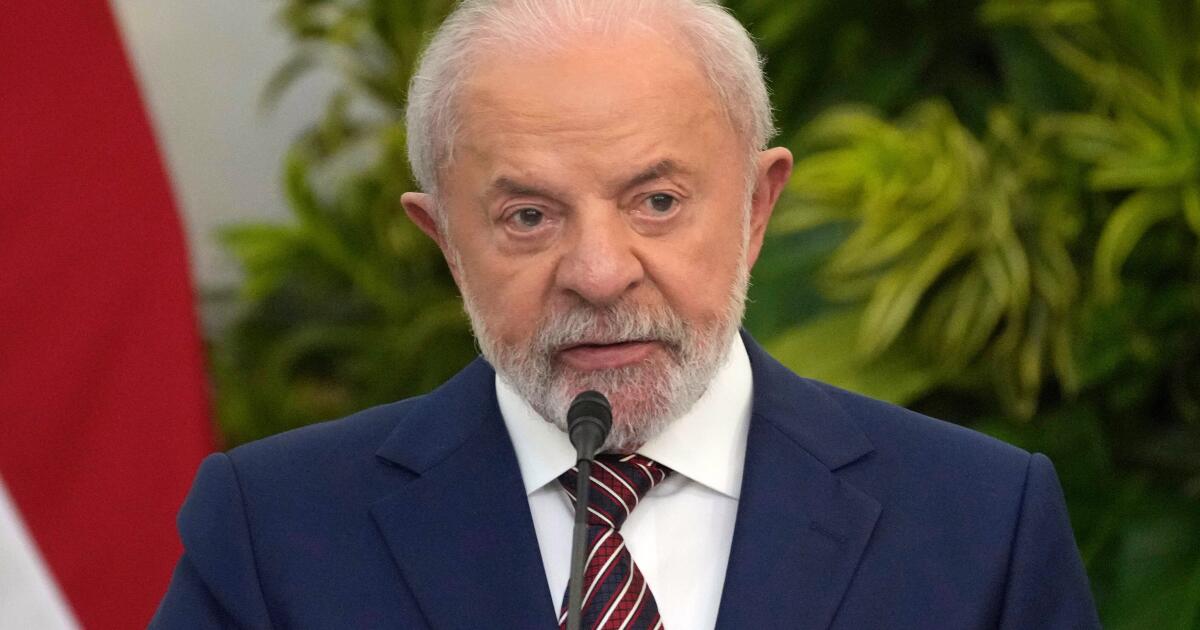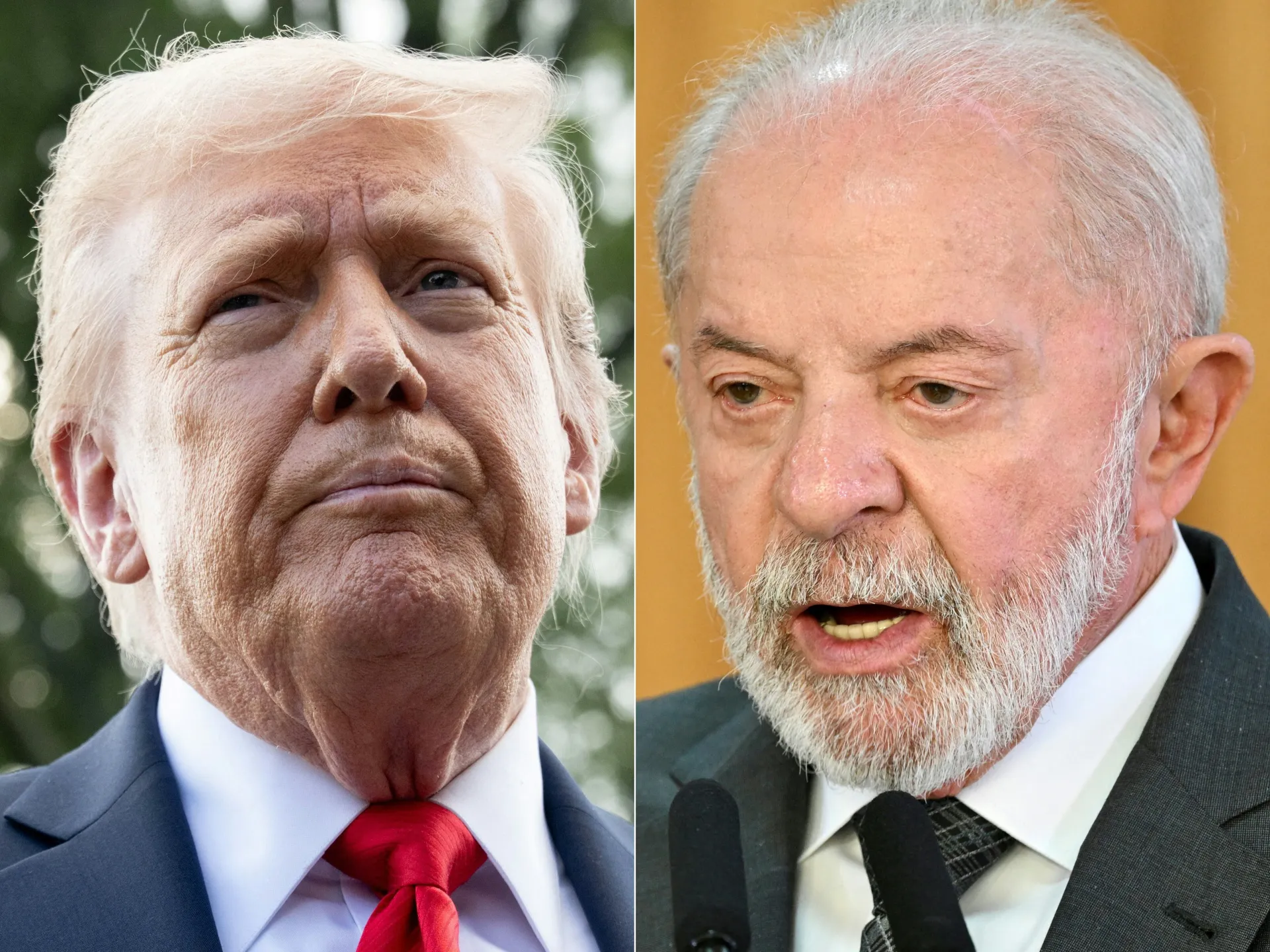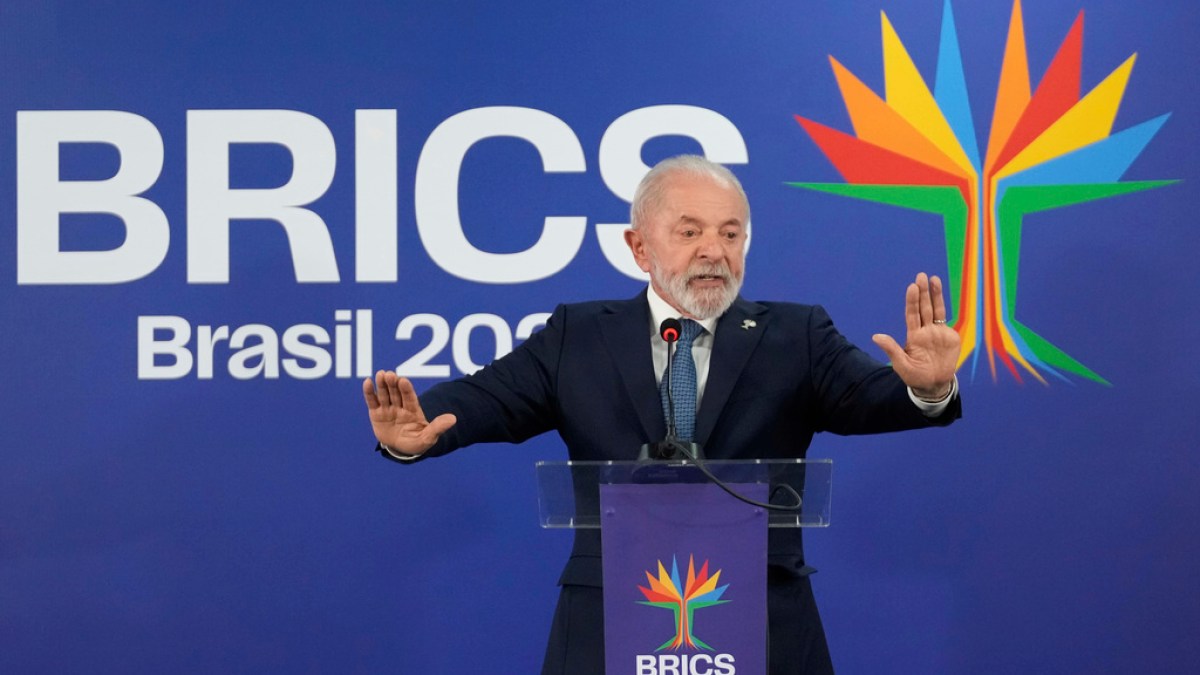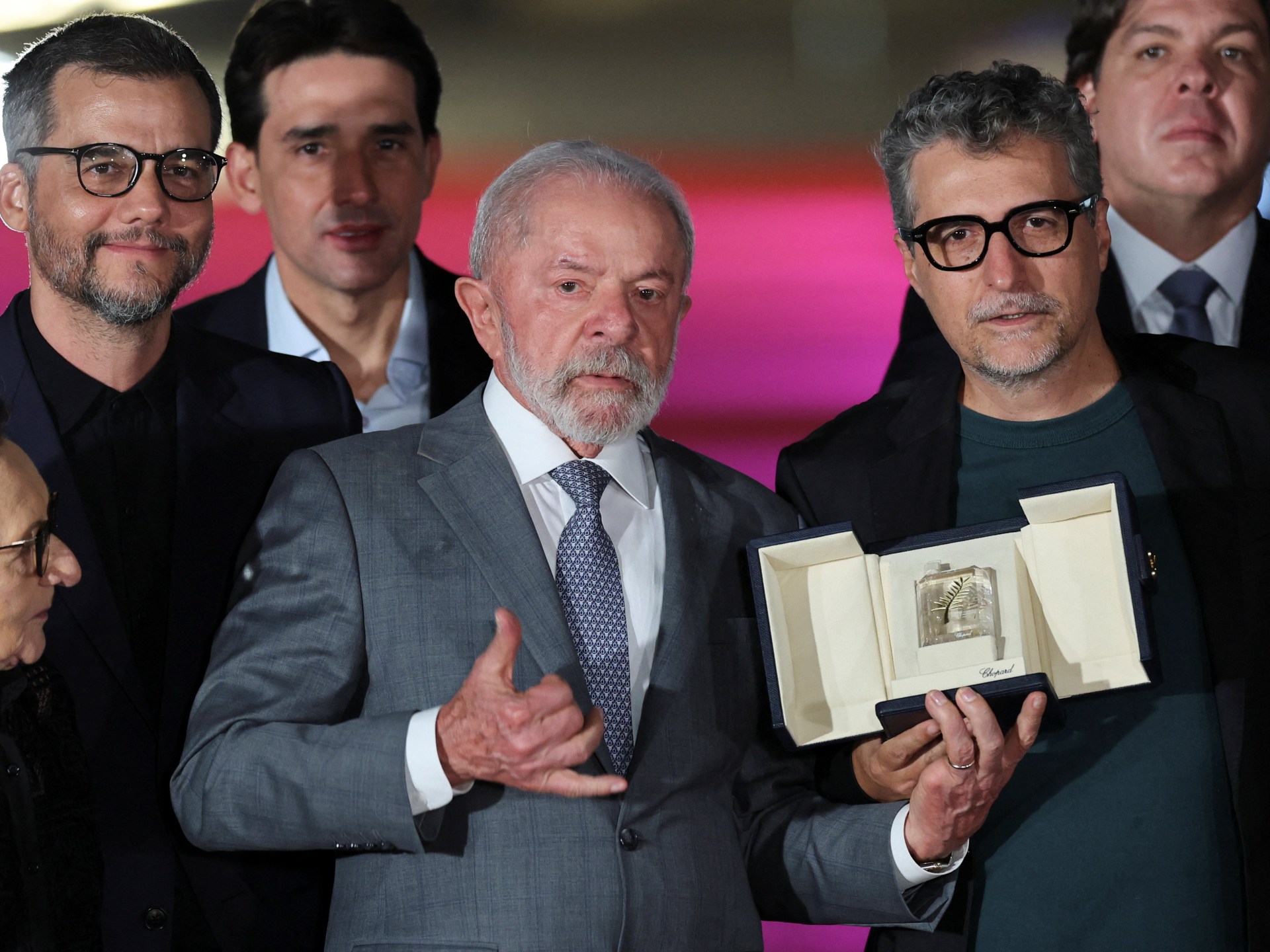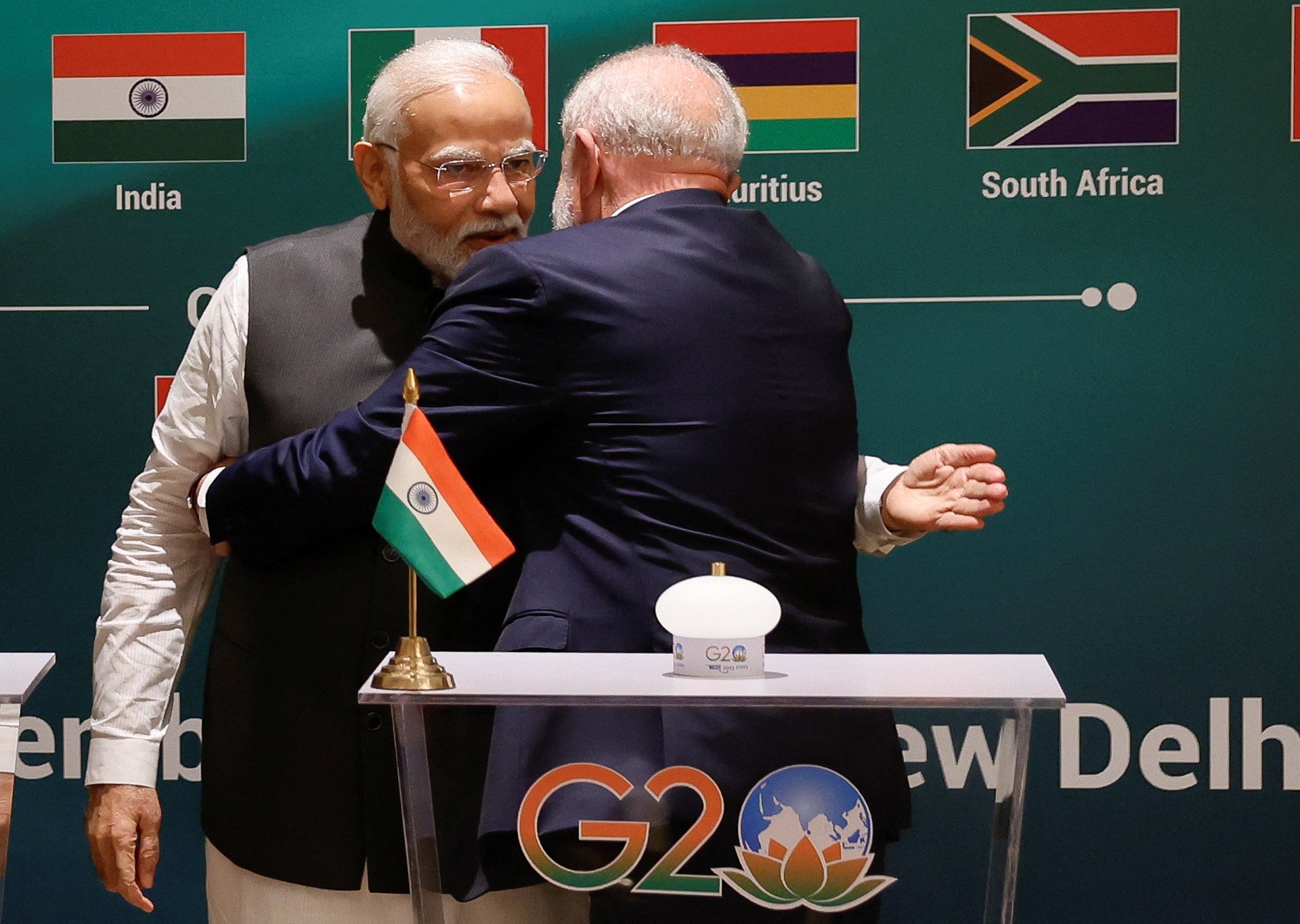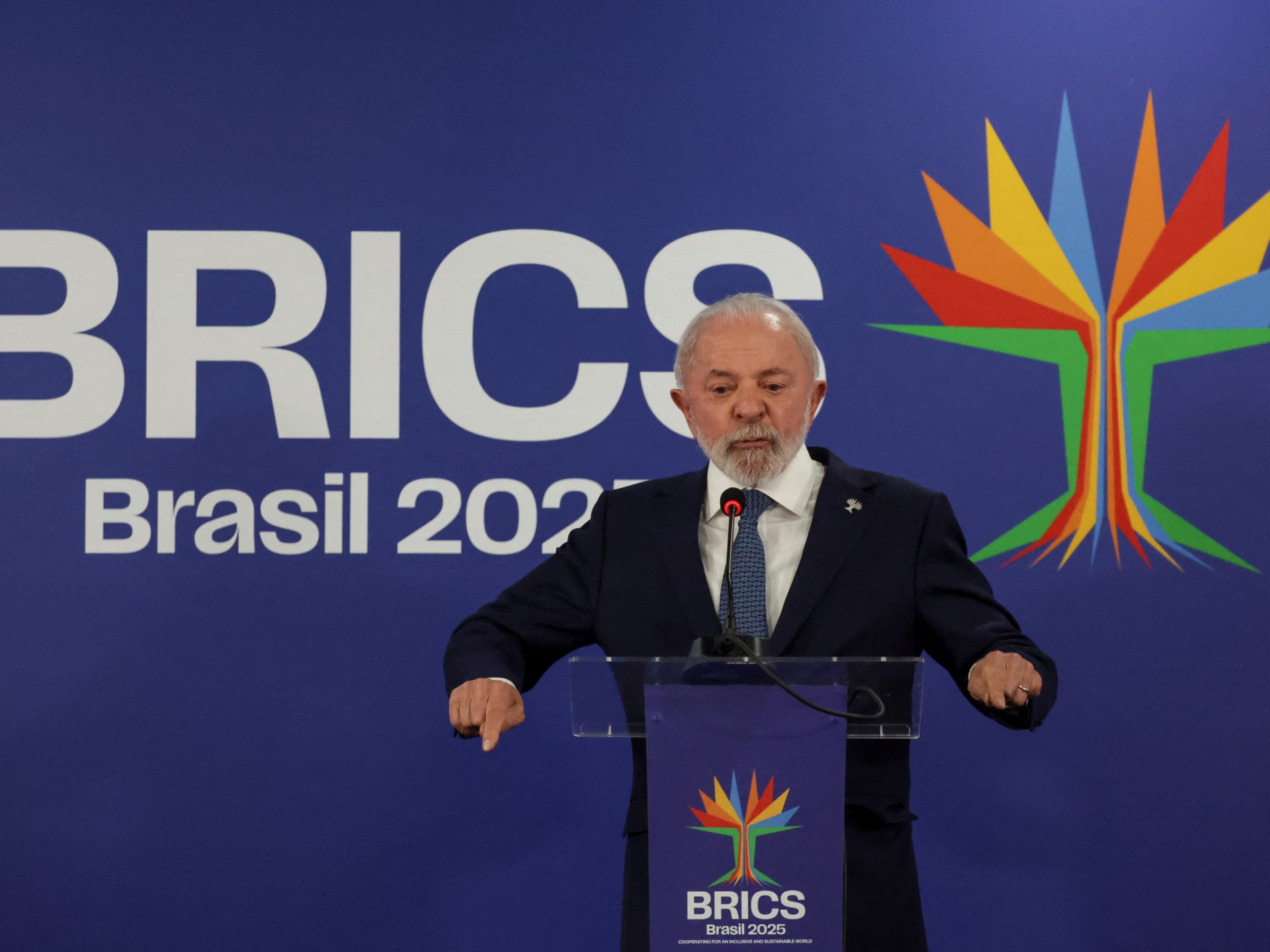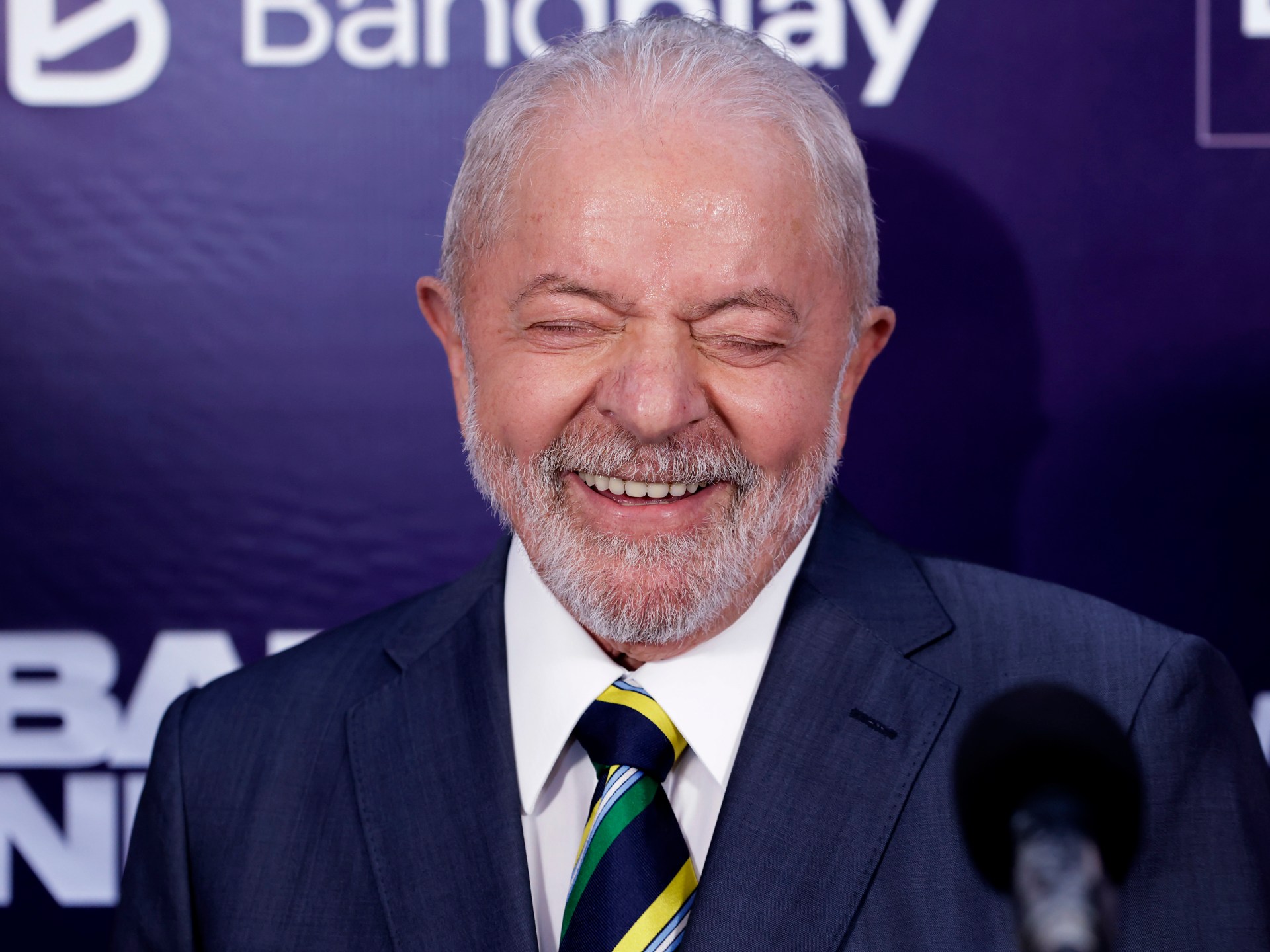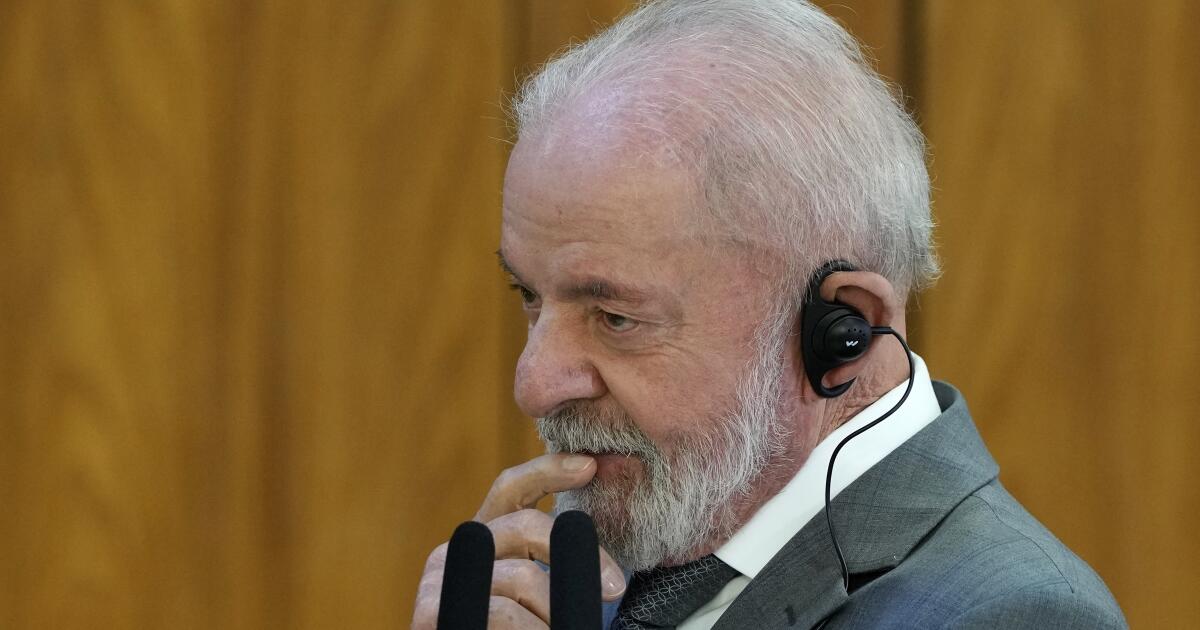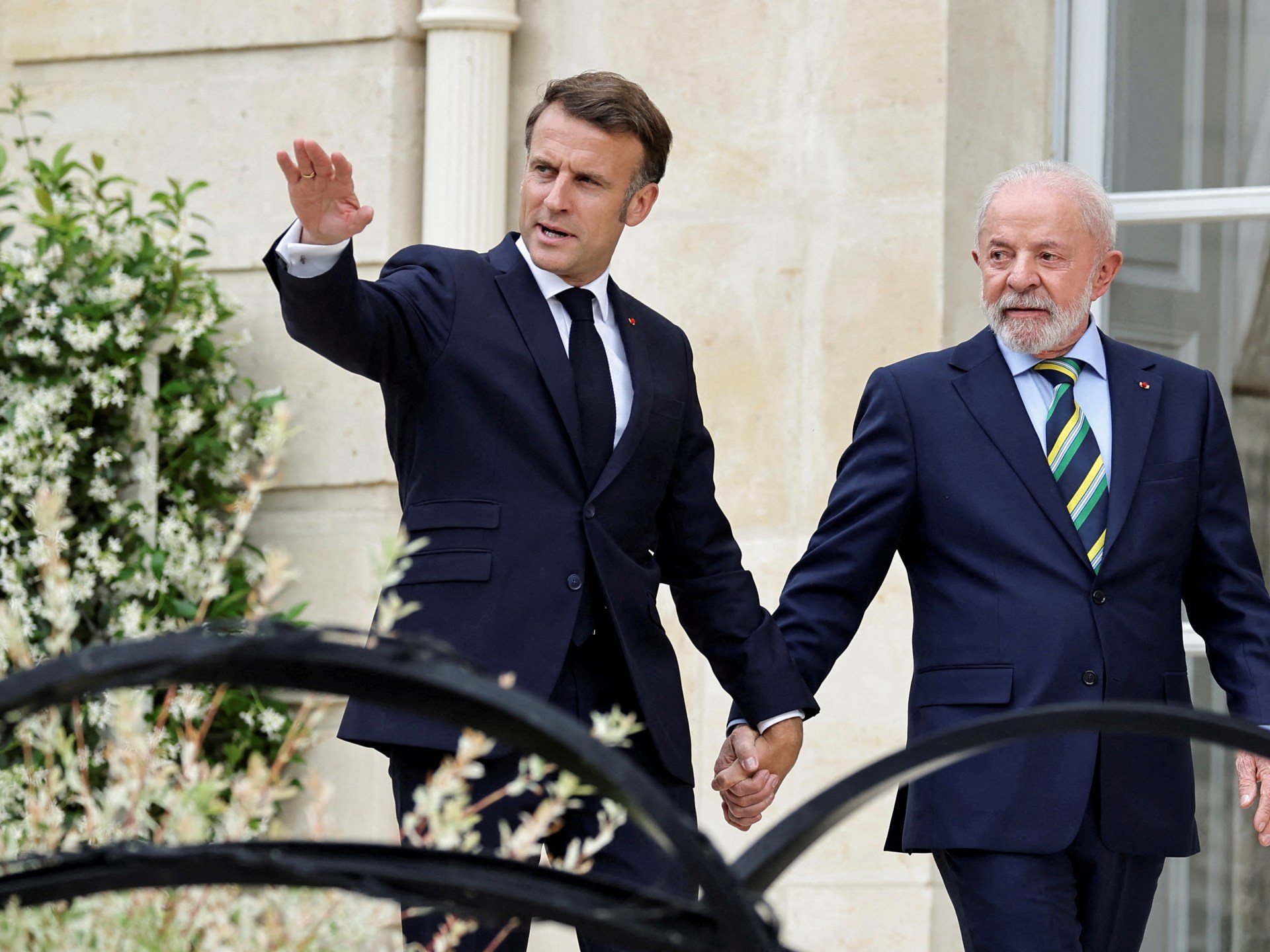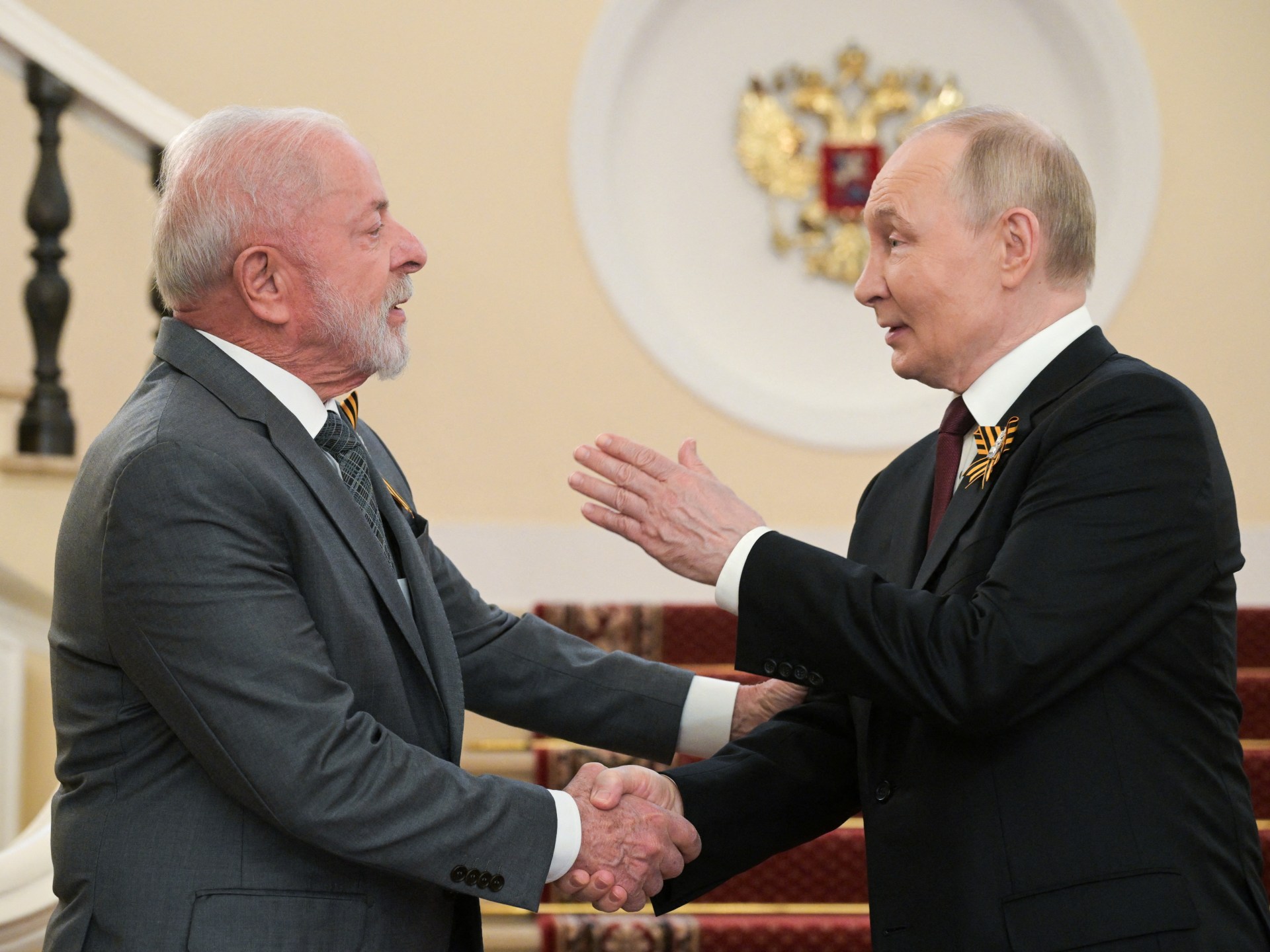RIO DE JANEIRO — Brazilian President Luiz Inácio Lula da Silva said Thursday that he will impose retaliatory tariffs on the United States if President Donald Trump follows through on a pledge to boost import taxes by 50% over the South American country’s criminal trial against his predecessor, Jair Bolsonaro.
Lula said he will trigger Brazil’s reciprocity law approved by Congress earlier this year if negotiations with the U.S. fail.
“If there’s no negotiation, the reciprocity law will be put to work. If he charges 50 [% tariffs] from us, we will charge 50 from them,” Lula told Record in excerpts of an interview. “Respect is good. I like to offer mine, and I like to receive it.”
Lula’s comments raise the risk of a tariffs war erupting between the two countries, similar to what has happened between the U.S. and China. Trump has vowed to respond forcefully if countries seek to punish the U.S. by adding tariffs of their own.
The tariffs letter that Trump sent to Brazil — and posted on social media Wednesday — railing against the “witch hunt” trial against Bolsonaro opened up a new front in his trade wars, with the U.S. leader directly using import taxes to interfere with another nation’s domestic politics. Trump has already tried to use tariffs to ostensibly combat fentanyl trafficking and as a negotiating tool to change how other nations tax digital services and regulate their economies.
In Brazil’s case, Trump is trying to dictate the outcome of the criminal trial of Bolsonaro, an ally who, like Trump, has been charged with attempting to overturn a presidential election. Bolsonaro maintains that he is being politically persecuted by Brazil’s Supreme Court over his charges on the alleged plot to remain in power after his 2022 election loss to Lula.
“There’s nothing Lula or Brazil can do about Bolsonaro’s trial,” said Carlos Melo, a political science professor at Insper University in Sao Paulo. “Any change in that would be Brazil’s capitulation. Bolsonaro’s situation here won’t change. How do you negotiate over that?”
Lula ordered his diplomats on Thursday to return Trump’s letter if it physically arrives at the presidential palace in Brasilia. The document attacks the country’s judiciary and mentions recent rulings on social media companies among the reasons why goods from the South American nation will have higher tariffs from Aug. 1.
Trade negotiations now ‘up in the air’
Trump has initiated his tariffs under the 1977 International Emergency Economic Powers Act, saying in April that the persistent deficit between what the U.S. exports and what it imports is a national crisis.
But the U.S. runs a trade surplus with Brazil, undermining some of the rationale.
A staffer of Brazil’s foreign ministry told the Associated Press that trade negotiations that were ongoing since Trump imposed a first set of tariffs in April are now “up in the air.”
Some members of the Lula administration say Trump’s move is actually aimed at Brazil’s connection with other Southern economies, as displayed on Sunday at the summit of BRICS nations hosted in Rio de Janeiro. Brazil’s president once again mentioned the hope for an alternative currency to the dollar for transactions, a topic that frequently draws Trump’s ire.
“Trump was never worried about democracy anywhere, much less with Bolsonaro’s destiny,” said Gleisi Hoffmann, Brazil’s institutional relations minister. “What he fears is the strengthening of the commercial and financial relations of the global south, which Brazil is helping to build in the BRICS bloc and in other forums. We won’t be Trump’s hostages.”
Brazil’s new unity
Trump’s interference in Brazilian affairs has brought a sense of unity that was largely absent in the politically divided nation. Some of Bolsonaro’s allies claimed Lula had drawn the U.S. president’s anger with other decisions, including criticism of Israel’s war in Gaza. But other supporters of the former president chose to ask for prudence in negotiations.
Daily newspaper O Estado de S. Paulo, a frequent critic of Lula and his administration, said in an editorial on Thursday that Trump’s move against the Brazilian government is “a mafia thing.” It also said Lula’s reaction was correct, a rare feature for the newspaper.
“Trump meddles in a degrading form into Brazil’s affairs,” the editorial said. “It is true that Trump has no respect for liturgy and rituals of the relations between States, but even for his standards the letter sent to the Brazilian government crossed every boundary.”
While Trump has talked tough, it has not necessarily produced his desired political outcomes abroad. Canadians recently elected Mark Carney as prime minister, with his Liberal Party reenergized by Trump’s tariffs and threats to make Canada the 51st U.S. state.
Analysts also see Trump’s attempt to interfere in the country’s domestic affairs as a potential backfire for Bolsonaro during his trial and a push for Lula, whose reelection bid was facing unpopularity headwinds this year.
“The reaction of a lot of people is that this is a political gift to Lula,” said Andre Pagliarini, a professor of history and international studies at Louisiana State University who is also affiliated with the Quincy Institute for Responsible Statecraft.
Thomas Traumann, an independent political consultant and former Brazilian minister, called Trump’s move “a game changer” for next year’s election.
“Trump put Lula back in the game,” Traumann said. “This gives Lula a narrative, puts Bolsonaro as the guilty part for any economic problems.”
Exceeding the authority
The U.S. Court of International Trade ruled in May that Trump had exceeded his authority by declaring an emergency to impose tariffs without congressional approval. The Trump administration is appealing that decision, but opponents plan to use his Brazil letter to bolster their case.
“This is a brazenly illegal effort by Donald Trump to sacrifice the economy to settle his own personal scores, and it is far outside his legal authority,” said Democratic Oregon Sen. Ron Wyden.
The Republican administration has argued that their tariffs are now relatively harmless for the U.S. economy, since inflation has trended down in recent months. But many companies stockpiled imports to get ahead of the import taxes, and it’s unclear what happens when their inventories dwindle and consumers consider the risk of higher prices. Most outside economic analyses expect growth to decline.
In Brazil, Trump’s interest in Bolsonaro’s trial is expected to weigh over the trial. Media outlets have reported that lawmakers and judges are worried the former president will try to leave Brazil for the U.S. if he is convicted.
“We can’t rule out that Trump will give him some sort of exile later and is hiking tariffs to prepare his excuse,” said Melo, the professor in Sao Paulo. Bolsonaro’s passport was seized by Brazil’s Supreme Court because he is perceived as a flight risk.
Lawmaker Eduardo Bolsonaro, a son of the former president, moved to the U.S. in March. On Wednesday night, he asked his supporters on X to post “their thank you to President Donald Trump.”
In Thursday’s interview, Lula said the elder Bolsonaro “should take the responsibility for agreeing with Trump’s taxation to Brazil.”
“His son went there to make up Trump’s mind, then he [Trump] writes a letter to speak about a case that is on the hands of the Supreme Court. A case that is not a political trial. What is under investigation is the evidence of the case,” Lula said.
Savarese and Boak write for the Associated Press. Boak reported from Washington.
